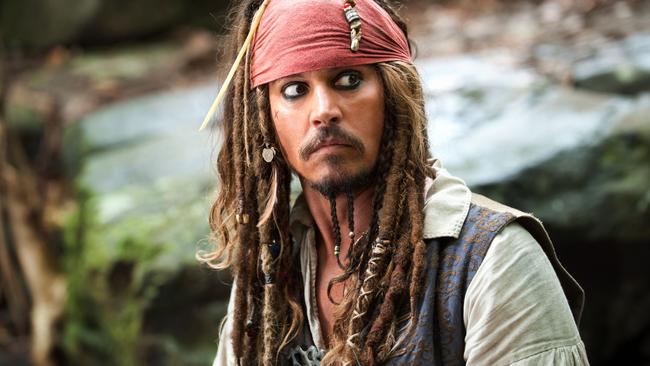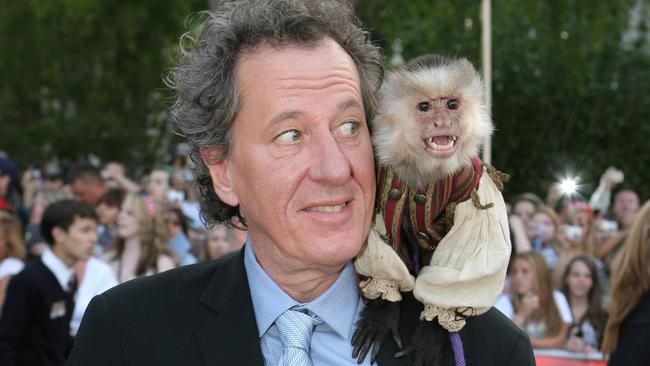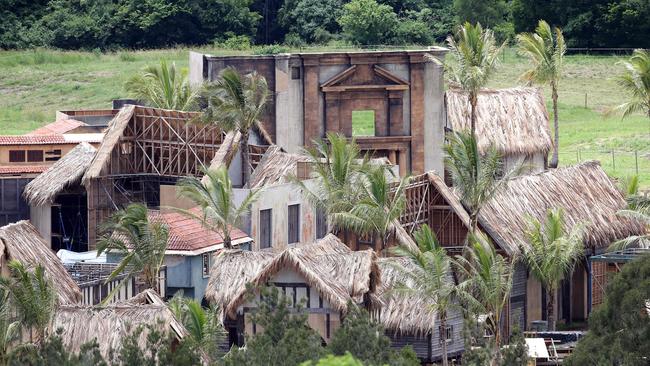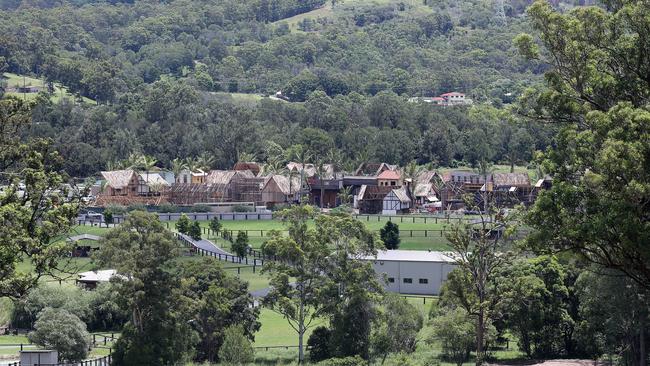Pirates of the Caribbean ‘pests’ to be quarantined for a month on Gold Coast
JOHNNY Depp’s arrival in Australia for the filming of Pirates of the Caribbean 5 was a no-fuss affair compared with one of his co-stars.

JOHNNY DEPP may have arrived in Queensland to film the latest instalment of Pirates of the Caribbean, but it will be at least another month before he’s joined on set by his simian co-star.
Jack the Monkey faces 30-days in quarantine when he and an understudy arrive on or about March 9, providing the necessary paperwork goes through.

Getting the monkeys into Australia for the $250 million film has proven to be a major headache for producers because of strict biosecurity and quarantine laws.
In Queensland, capuchin monkeys are a category 1 declared pest, putting them in the same class as crazy ants and rattlesnakes.
But filming Pirates of the Caribbean 5 without Jack the Monkey was never an option, having appeared in all previous instalments of the blockbuster series.
Billed as the “meanest, most rotten tempered simian in all of the Caribbean”, Jack is owned by the black-hearted Captain Hector Barbossa, played by Australian Geoffrey Rush.

A Department of Agriculture spokeswoman said they were currently processing an import application for the two movie star monkeys received in December last year.
“The department is working closely with the importer to ensure that the monkeys can meet Australia’s biosecurity requirements,” said the spokeswoman.
“These include being listed on the Federal Department of Environment’s permitted species list.”
The Department of Agriculture has undertaken inspections of a purpose built quarantine unit at Village Roadshow’s Gold Coast studios where the monkeys will serve out their stint in isolation.

They will remain in the unit throughout filming under 24-hour supervision, before being flown in steel mesh crates to Port Douglas in July.
In a report prepared by the Department of Environment, it is noted that the adult male and female monkeys are both sterile.
“There is no possibility that the importation of the species could lead to any increased risk of the establishment of a breeding population of capuchin monkeys in the Australian environment,” said the report.

A spokesman for Biosecurity Queensland said they were doing all they could to ensure the monkeys could come to Queensland for the making of the movie.
“This involves some administrative changes and is being treated as a priority,” he said.
It is understood this includes a permit to “keep a declared pest animal for film”.




